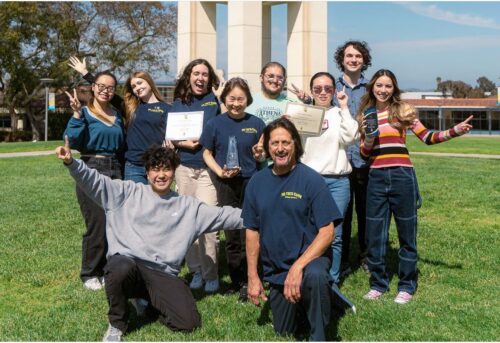Happy Hallmark Awards Writing Season! You’ve explored the Honors Study Topic, conducted extensive research, planned and implemented Honors in Action and College Projects. This is the final step: preparing your submission entry.
The Hallmark Award application alone will determine which chapters, members, advisors, and administrators will be recognized and rewarded on stage during PTK Catalyst 2019. Therefore, it is imperative that your entry is well-written and concise and that it gives the judges all they need to know about the projects or the individuals.
“This quote from Nelson Mandela feels especially relevant this time of year: ‘It always seems impossible until it’s done,’ ” said Susan Edwards, Phi Theta Kappa’s Associate Vice President of Honors Programming and Undergraduate Research.
First things first: make sure you have the deadlines on your calendar. Entries are due by 5 p.m. CT on the following dates:
- Administrator Hallmark Awards (including Board of Trustees) — Wednesday, December 5
- Individual Hallmark Awards — Wednesday, January 9, 2019
- Regional Officer Hallmark Awards — Thursday, January 10, 2019
- Chapter Hallmark Awards (Honors in Action Project and College Project) — Wednesday, January 16
- Alumni Hallmark Awards — Thursday, January 31, 2019
- Regional Awards for Excellence — Thursday, January 31, 2019
Now, you can start writing. Here are 10 must-read tips to keep in mind as you complete the applications. While some focus on the Chapter Award applications, they can apply to other applications as well.
1. “Show,” don’t “tell.” Telling a judge something is true leaves the judge wondering, “How do I know this is the case?”
- It is colder in Latvia in the winter than in Iceland.
- Ashley is our hardest worker and the greatest asset.
Showing the judge something is true by way of a citation or some kind of evidence that shows the assertion has merit leaves no doubt.
- The online World Almanac (2018) shows a colder average high temperature of -10 degrees C in January in Riga than the average high of -2 degrees C in Reykjavik.
- Ashley effectively led our Honors in Action team this year by recruiting five members to serve on our research team, by inviting the college’s research librarian to conduct a workshop for the team on academic research, and by setting up a DropBox folder and sharing it with all chapter members so they could follow our progress throughout the year.
2. Utilize the Hallmark Award Resources. Take a look at the Honors in Action and College Projects excerpts posted online to see what top chapters wrote last year.
3. Remember the purposes of the Honors in Action and College Project entries. Be sure you are expressing the work your chapter did to support those purposes as you write your entry.
4. Brainstorm with your team and/or chapter to be sure you have everything needed to answer each question in your entry. Look at how the information you have gathered as you planned, implemented and completed your Honors in Action and College Projects meets the judging rubrics requirements and outline what information you will use to answer each question. This is a good way to celebrate what you have achieved and consider what you have learned and how you have grown as scholars and leaders who serve your communities.
5. Be sure to examine academic sources of varied viewpoints. They don’t have to be opposite one another, but they should show a range of ideas. If you decide to advocate for one or more of the ideas, be sure you explain all the ideas you studied and why you decided to support one or more of the ideas.
6. Honors in Action is all about the Honors Study Topic. Remember to always go back to Transformations: Acknowledging, Assessing, and Achieving Change as you consider your theme and the elements of your project. You are researching and writing about your theme as it relates to the overall Honors Study Topic.
7. Be sure to read and re-read the judging rubrics to explain in detail how you met each criterion. The updated Hallmark Awards application questions and rubrics provide guidance and outline everything a winning entry should include. Be detailed in your answers in ways that help judges understand the process you followed.
Don’t leave the readers wondering “Why?” or “So What?” If Theme 1 was the best fit for your chapter, don’t just say that. Explain why.
8. Do not restate the questions in your answers. Doing so eats away at your word count. The judges will see the questions with the answers when they review the applications.
9. Always check for the tricky “and” in the question. Answering every part of the question is imperative. Don’t leave anything out, especially the process. Don’t simply state your chapter’s specific goals; summarize the process the chapter used to set those goals.
10. Leave enough time to edit, edit, edit, edit. Read the entry aloud together at some point during the editing process so you will know if the entry reads the way you want. If needed, complete your application answers offline so you can print, read, edit, and then edit again. The most successful applications have faultless grammar and spelling.
Hallmark Award applications and rubrics may be found HERE. Tips, ideas, FAQs, and other resources may be found HERE.




